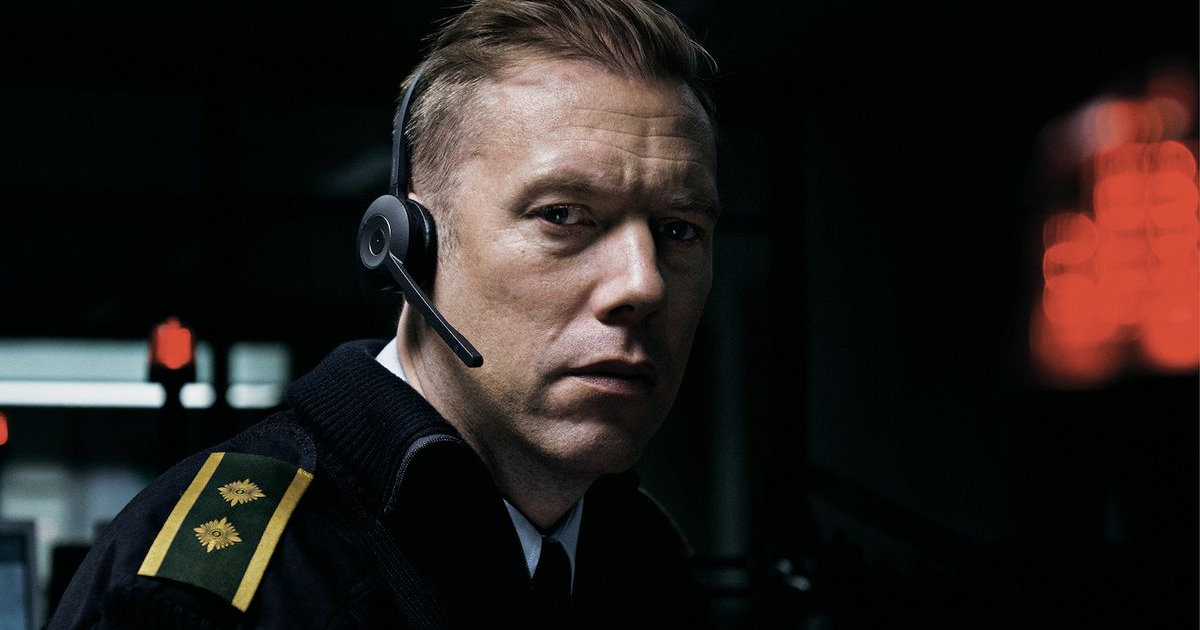
It sure has gone by fast, but once again it’s that time of year, Oscar season. Now that the major fall film festivals are all but behind us, some of the year’s biggest and brightest pictures have started rolling out into theaters with the likes of A Star Is Born and First Man making splashes in theaters across the globe. However, on a lesser talked about tip, some of the submissions for the 91st Oscar’s Best Foreign Language Film category have begun rolling out as well, with a major front-0runner doing so October 19.
Entitled The Guilty, this award-winning drama from director Gustav Moller stands as Denmark’s entry for this upcoming Oscar ceremony, and despite being a deceptively small-scale thriller, this is both a truly superlative character study and also a shockingly tense experiment in storytelling.
Moller’s film introduces us to policeman Asger Holm (Jakob Cedergren) who after being pushed into phone duty, answers a distress call that will forever change him. Subverting his previously held expectation that doing some dispatch work may make leave him with a desire to take a long nap, Holm answers a call from a woman claiming to have been kidnapped. Unable to truly parse what the context of the situation is, Holm takes this at face value, and begins to dive into a story that will leave him relying on those in and around the case to truly decipher what has happened and what the stakes are. The definition of a slow burn thriller, The Guilty unravels in more or less real time, never once leaving Holm’s desk as the stakes and subsequently the film’s sense of impending dread and overall tension are amped up to uncanny levels.
I’m being deceptively brisk in my discussion of the film’s plot, because to do anything more would be to do you, the reader of this review, a great disservice. The power of this film comes in two forms, most notably the uncertainty of the overall narrative. Told almost entirely through close-ups of actor Cedergren’s face, the film’s central narrative happens through sound design, second-hand descriptions and a devastating, physical lead performance. Uncertainty abounds here, as Moller subverts the idea of “showing, not telling,” instead opting to do very little more than tell, only to use the yarn being woven second-handedly to leave the viewer’s imagination completely wrapt with tension. Whereas “telling” would be a negative in a sense of overbearing exposition, there’s a sense of unease surrounding the central case that we the viewer begin to see ourselves in the increasingly emotive face of Cedergren. He has no idea what’s actually happening, only being able to use the descriptions he’s being given, and in turn we the viewer watch this man begin to slowly fall apart just as we are slowly tightening our grip on the arm of our chair.
Without this performance the film would truly be insufferable. Without a performance as quietly emotive as Cedergren’s, The Guilty would feel like nothing more than a 90-ish minute information dump. However, Cedergren’s face is full of empathy and humanity, with each new phone call breaking down a new wall of his hope and humanity. There’s a brief burst of emotion near the film’s conclusion that’s perfectly timed and perfectly placed within the film, the exact type of emotional outburst that the viewer has been waiting an hour-plus themselves to have. It’s also one of the few scenes that breaks from the film’s use of close-ups, adding depth to the world Holm is living in, allowing him a moment to get up from his desk and escape the tension. It’s a release that’s both necessary and deeply upsetting, a moment viewers will not soon forget.


